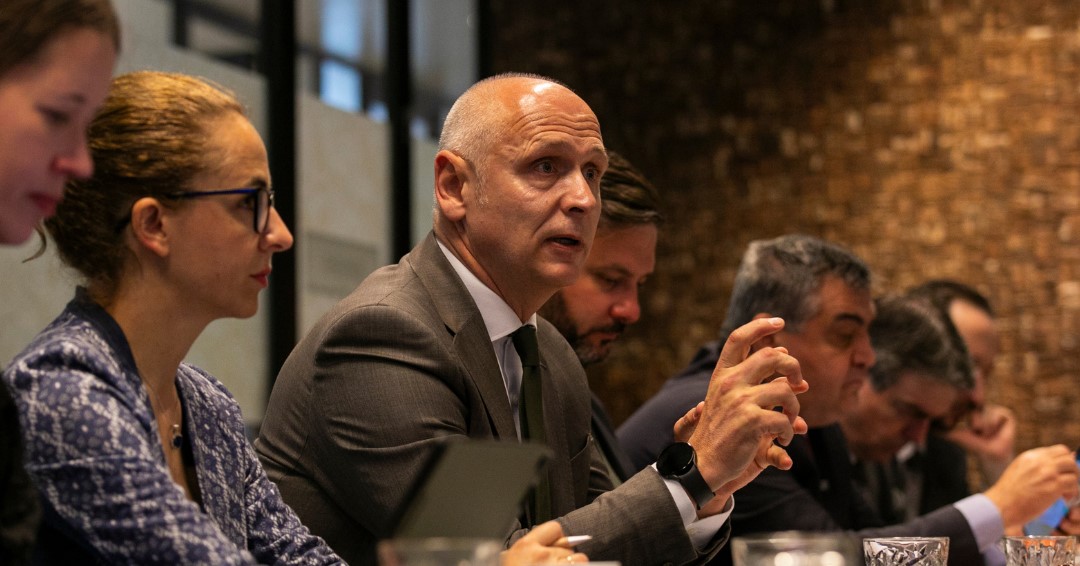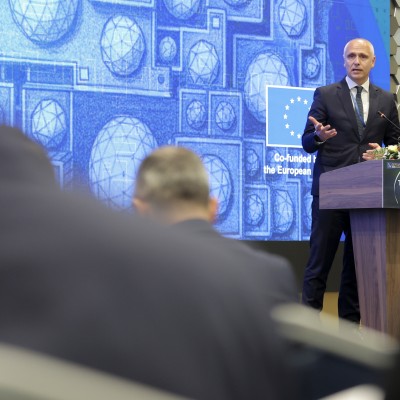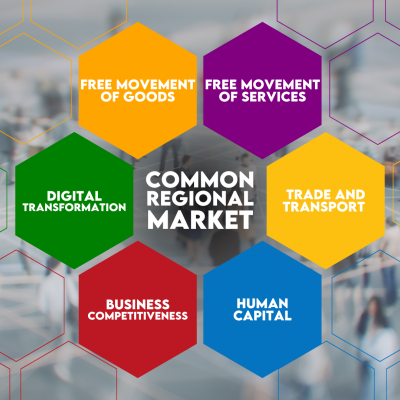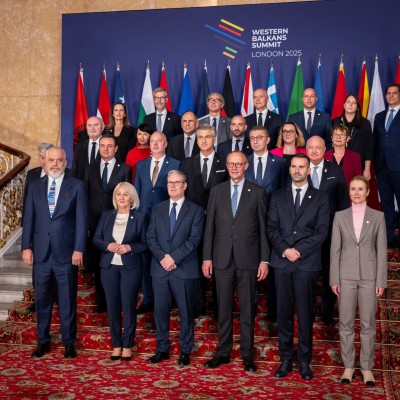RCC Secretary General hosts a Briefing with SEECP Ambassadors in Brussels
23 May 2025

Secretary General of the Regional Cooperation Council (RCC), Amer Kapetanović, hosted a briefing with ambassadors of the South-East European Cooperation Process (SEECP) in RCC's Liaison Office in Brussels on 23 May 2025 (Photo: RCC/Laure Geerts)
Brussels - The Secretary General of the Regional Cooperation Council (RCC), Amer Kapetanović, hosted a briefing with ambassadors of the South-East European Cooperation Process (SEECP) participants accredited to the European Union, at the RCC Liaison Office in Brussels today.
Organised by the RCC, the briefing offered a comprehensive overview of current regional cooperation efforts and future priorities, with a strong focus on the implementation of the South East Europe 2030 (SEE2030) Strategy, a joint commitment by all 13 SEECP participants to sustainable, inclusive, and smart development across South East Europe.
“Our SEE2030 Strategy is more than a document, it is a roof that shelters our region’s joint aspirations. It brings together 13 SEECP participants around 45 concrete development targets rooted in the UN Sustainable Development Goals,” said RCC Secretary General Amer Kapetanović. “At a time when crises are becoming the norm, SEE2030 is a reminder that our future depends on cooperation, shared responsibility, and strategic resilience.”
During the briefing, Kapetanović highlighted the synergies between the SEE2030 Strategy, the Common Regional Market (CRM) 2025-2028, and the Green Agenda for the Western Balkans. He underscored the importance of aligning these regional frameworks to deliver measurable progress for people, businesses, and institutions alike.
Ambassadors expressed strong support for the RCC’s efforts, recognising its central role in translating shared regional goals into concrete actions. They welcomed the progress made under SEE2030 and other strategic frameworks, and encouraged the RCC to continue its inclusive, forward-looking approach in addressing the region’s key development challenges.
Discussions also covered key initiatives led by the RCC, including: the launch of CRM 2.0 as a pathway to EU Single Market integration; enhanced human capital development and mobility of people; regional digital transformation and connectivity; human security via establishing the Regional Disaster Risk Insurance Network; and strengthening climate resilience by implementing the Western Balkans Climate Adaptation Roadmap.
The RCC Secretary General also informed ambassadors about preparations for the upcoming Berlin Process Summit in the UK this autumn, where the region will present a package of deliverables rooted in reform and regional solidarity.
With SEE2030 as its compass, the RCC reaffirmed its role as the region’s operational arm for cooperation and development under the SEECP umbrella, bridging ambition and action across South East Europe.



